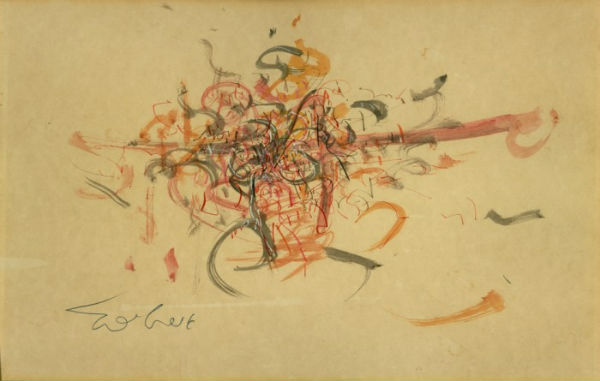Every once in a while I give in to temptation and publish a poem-post, sharing something of Hebrew cuture’s greatest assets.
Today’s poem-post is a double. First, here’s a birthday gift. We are this week celebrating the centannial of poet, author, literary scholar and writer for children Leah Goldberg, who passed away in 1970 but like all true poets is immortal.
Goldberg was born in 1911 Königsberg in Prussia (today Kaliningrad in Russia) and moved to Tel-Aviv in her twenties. She lived on Arnon street in the then north of the city, a mere 50 yards or so from where this post is being written, and was a part of the “Kassit” scene, centered around Dizzengoff st.
Kassit Cafe, which served as a hub for Tel-Aviv’s literary scene of the 50s and 60s, was known for its nights of heavy drinking, for its romances and dramas. Goldberg, although fascinated by the figures surrounding her, led a more moderate domestic lifestyle. I picked a “day” poem of hers, to be soon counterbalanced by a “night” poem by another poet. This one was fantastically put to music by Israeli Musician Shlomo Yidov.
White Days
White, long days, like the sun’s rays in summer
Long, solitary peace on the riverfront,
Windows wide open to azure silence
Straight, tall bridges between yesterday and tommorow
Your silence, empty white days,
Is so easy to bear,
See, my eyes have learned to smile. They long ago stopped
rushing the slender ones on the clock face.
My heart got used to itself, it counts softly its beats
And to the sweetness of the soft rhythm, is pacified, yields and calms down
Like a baby singing his own lullaby before closing his eyes
once the tired mother had shut hers, fell asleep.
۞
The nocturnal poem is by Yehudah Amichai, perhaps the Hebrew poet most familiar to readers of the English language, since he himself translated much of his work into English. Amichai was born in Bavaria of the 20s to an orthodox Jewish family. Like Goldberg he immigrated as a young man. Like goldberg, he assumed the Hebrew language as a his poetic tongue and peformed wonders with it.
Being a Jerusalemite, Amichai lived apart from the Tel-Aviv scene. During the 60s this gave him greater liberty to be sentimental, even pathetic. When pathos works for Amichai, it works magic, and here is a good exmple. I have mentioned already this poem and a strange story relating to it in my old blog, but this is my first full translation of it.
A Royal Love Poem
You are beautiful, like prophecies
And sad, like those that come true.
Silent with the peace of afterwards
Black in the white solitude of Jasmine.
Sharp fangs in your mouth: a she-wolf and queen.
The dress is short, contemporary
But the tears and laughter from a bygone age
Maybe the books of other kings.
I have never seen foam in the nostrils of a storming horse in battle
but when you lathered your body with soap,
I saw.
You are beautiful like prophecies that do no come true
And this is the royal scar
For the tongue to go over, for the the thorny hand
Over the sweet ruggedness.
With hard shoes you knock
a back and forth prison bar over me.
Your many rings
Are sacred Leprosy of your fingers.
From the ground rises
All that I wished not to see again
pillar and window sill, potico and jug, Shatters of wine.
There’s much hiding of face here
(of whom from whom?)
and at night to drill with the blind golden scepter
in pleasures with the weight of sovreignty and exhaustion.
۞
I would like to conclude this post with a word about Uri Lipschitz, the artist whose painting appears at the top. Lipschitz died today at the age of 75. He was an extremely passionate artist and an impressive human being. I had the honor of knowing him personally through mutual friends and he left an strong impression. I am deeply saddend to hear of his passing.
Over the years, Lipschitz became known for his controvesial opinions. Some comments he made about disadvantaged groups in the society made him seem heartless. I did not share his opinions but admired and respected him nevertheless. Art is the first home of tolerance, the second is the blogosphere, so here is certainly a good place to reconcile with Lipschitz and send his soul lovingly to the next world, with warm regards to Goldberg and Amicahi.



